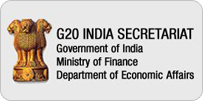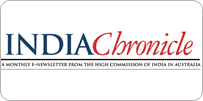| Official Name | : | Commonwealth of Australia | |||||||||||||||||||||||||||||||||||||||||||||||||||||||||||||||||||||||||||||
| Geographical location | : | (Latitude) 10° 41’ South and 43° 39’ South (Longitude) 113° 09’ East and 153° 39’ East |
|||||||||||||||||||||||||||||||||||||||||||||||||||||||||||||||||||||||||||||
| Area | : | 7.7 million sq.km (coastline 25,760 km) | |||||||||||||||||||||||||||||||||||||||||||||||||||||||||||||||||||||||||||||
| Climate | : | Summer from December to February Autumn from March to May Winter from June to August Spring from September to November Conditions vary depending on location |
|||||||||||||||||||||||||||||||||||||||||||||||||||||||||||||||||||||||||||||
| Population | : | 22.5 million (Dec. 2011) | |||||||||||||||||||||||||||||||||||||||||||||||||||||||||||||||||||||||||||||
| States and Territories | : | Territories: Australian Capital Territory (370,700) Northern Territory (232,400) |
|||||||||||||||||||||||||||||||||||||||||||||||||||||||||||||||||||||||||||||
| States: | : | New South Wales (7.2 mn) Victoria (5.6 mn) Queensland (4.5 mn) Western Australia (2.4 mn) South Australia (1.6 mn) Tasmania (0.51 mn) |
|||||||||||||||||||||||||||||||||||||||||||||||||||||||||||||||||||||||||||||
| Federal Capital | : | Canberra (370,700) | |||||||||||||||||||||||||||||||||||||||||||||||||||||||||||||||||||||||||||||
| Other Major Cities | : | Sydney (4.4 mn) Melbourne (4.0 mn) Brisbane (2.1 mn) Perth (1.7 mn) Adelaide (1.2 mn) Hobart (211,600) Darwin (121,000) |
|||||||||||||||||||||||||||||||||||||||||||||||||||||||||||||||||||||||||||||
| Religion | : | Christianity (13.0 million); Buddhism (0.68 million); Islam (0.44 million); Hinduism (0.153 million); Judaism (0.092 million); other religion groups include Australian Aboriginal traditional religions, Sikhism etc. | |||||||||||||||||||||||||||||||||||||||||||||||||||||||||||||||||||||||||||||
| Ethnic groups | : | Australia is a country of migrants; around 45% were either born overseas; have a parent who was born overseas. There are over 200 migrant nationalities, among whom are predominantly English, Irish, New Zealander, Italian, Croatian, Serbian, Vietnamese, Greek, Chinese, Indian (Caucasian 92%; Asian 7%; Aboriginal and others 1%) |
|||||||||||||||||||||||||||||||||||||||||||||||||||||||||||||||||||||||||||||
| Time difference | : | NSW, Queensland, ACT, Victoria and Tasmania: IST + 4½ hours South Australia and Northern Territory: IST + 4 hours Western Australia: IST + 2½ hours NSW, VIC, SA, ACT, TAS have Daylight Saving Time from October to March. |
|||||||||||||||||||||||||||||||||||||||||||||||||||||||||||||||||||||||||||||
| POLITICAL | |||||||||||||||||||||||||||||||||||||||||||||||||||||||||||||||||||||||||||||||
| Polity | : | Federal parliament democracy, based on the constitution of 1901, with Queen as head of State. The Government is headed by a Prime Minister in Cabinet. The Parliament is bicameral: the 150-member House of Representatives (the lower house) is directly elected by a preferential voting system for a three-year term; and the Senate (the upper house) the 76 Senators (twelve from each of the six States and two from each of the Territories) directly elected by proportional representation for six-year terms, with one-half of Senate members retiring every three years, usually to coincide with elections for the House of Representatives. The Senate may not initiate or amend money bills. |
|||||||||||||||||||||||||||||||||||||||||||||||||||||||||||||||||||||||||||||
| State legislatures | : | Five of the six states have bicameral legislatures; that of Queensland is unicameral | |||||||||||||||||||||||||||||||||||||||||||||||||||||||||||||||||||||||||||||
| Electoral system | : | Compulsory universal direct suffrage over the age of 18 | |||||||||||||||||||||||||||||||||||||||||||||||||||||||||||||||||||||||||||||
| National government | : | A cabinet, presided over by the Prime Minister, is appointed by the Governor-General on the basis of party strength in the House of Representatives; a minority Labor government is currently in power, supported by the Greens and four Independents | |||||||||||||||||||||||||||||||||||||||||||||||||||||||||||||||||||||||||||||
| Major political parties | : | The Australian Labor Party (ALP), the Liberal Party, the National Party, the Democrats, the Greens. | |||||||||||||||||||||||||||||||||||||||||||||||||||||||||||||||||||||||||||||
| Head of State | : | Her Majesty Queen Elizabeth II, Queen of Australia represented by the Governor General. | |||||||||||||||||||||||||||||||||||||||||||||||||||||||||||||||||||||||||||||
| Governor General | : | HE Ms. Quentin Bryce AC | |||||||||||||||||||||||||||||||||||||||||||||||||||||||||||||||||||||||||||||
| Prime Minister | : | The Hon. Julia Gillard, MP | |||||||||||||||||||||||||||||||||||||||||||||||||||||||||||||||||||||||||||||
| Foreign Minister | : | Senator the Hon. Bob Carr | |||||||||||||||||||||||||||||||||||||||||||||||||||||||||||||||||||||||||||||
| Leader of Opposition | : | The Hon. Tony Abbott, MP | |||||||||||||||||||||||||||||||||||||||||||||||||||||||||||||||||||||||||||||
| Party position Total | : | 150 | |||||||||||||||||||||||||||||||||||||||||||||||||||||||||||||||||||||||||||||
| House of Representatives | : | ALP : 71 Liberals* : 59 Nationals* : 11 Country Liberal Party* : 1 Independents : 5 Greens : 1 KAP : 1 Nationals (WA) : 1 *(Liberals, Nationals & CLP are in a coalition with 71 seats) |
|||||||||||||||||||||||||||||||||||||||||||||||||||||||||||||||||||||||||||||
| Senate | : | Total : 76 Liberal* : 28 Nationals/ Country Liberal Party :* 6 ALP : 31 Greens : 9 Democratic Labor Party : 1 Independent : 1 *(Liberals, National are in a coalition with 34 seats) |
|||||||||||||||||||||||||||||||||||||||||||||||||||||||||||||||||||||||||||||
| ECONOMIC | |||||||||||||||||||||||||||||||||||||||||||||||||||||||||||||||||||||||||||||||
| Composition of GDP | : | The Australian economy is based overwhelmingly on services, which account for 80.1% of GDP The mining sector accounts for 7.6%;manufacturing for 11%; agriculture, forestry and fishery for 2.3%. | |||||||||||||||||||||||||||||||||||||||||||||||||||||||||||||||||||||||||||||
| Financial Year | : | July 1 - June 30 | |||||||||||||||||||||||||||||||||||||||||||||||||||||||||||||||||||||||||||||
| GDP (current prices) | : | US$1,516.2 billion; (A$1,486.5 bn) (2011) | |||||||||||||||||||||||||||||||||||||||||||||||||||||||||||||||||||||||||||||
| GDP Per Capita | : | US$66,807 (A$ 65,497) (2011) | |||||||||||||||||||||||||||||||||||||||||||||||||||||||||||||||||||||||||||||
| GDP Growth | : | 2.2% (2011) | |||||||||||||||||||||||||||||||||||||||||||||||||||||||||||||||||||||||||||||
| Foreign Exchange Reserves | : | US$ 49.29 bn. (A$ 46.83 bn) (July 2012) | |||||||||||||||||||||||||||||||||||||||||||||||||||||||||||||||||||||||||||||
| Main natural resources | : | Coal, Gold, Iron Ore, Bauxite, Alumina, Uranium, Lead, Zinc, Copper, Nickel, Natural Gas. | |||||||||||||||||||||||||||||||||||||||||||||||||||||||||||||||||||||||||||||
| Main natural resources | : | Wheat, Barley, Oats, Oilseeds | |||||||||||||||||||||||||||||||||||||||||||||||||||||||||||||||||||||||||||||
| Principal crops | : | Wheat, Barley, Oats, Oilseeds | |||||||||||||||||||||||||||||||||||||||||||||||||||||||||||||||||||||||||||||
| Currency | : | A$ 1= US$ 1.03 / Rs. 57.39 (August 2012) | |||||||||||||||||||||||||||||||||||||||||||||||||||||||||||||||||||||||||||||
| Total Merchandise Trade(A$bn) | : | 598.23 (Exports:312.12;Imports:286.11)(2011) | |||||||||||||||||||||||||||||||||||||||||||||||||||||||||||||||||||||||||||||
AUSTRALIA’S PRINCIPAL TRADING PARTNERS (2011, Australian$)
|
|||||||||||||||||||||||||||||||||||||||||||||||||||||||||||||||||||||||||||||||
| Outward Investment | : | (A$mn.) 1,234,375 (2011) | |||||||||||||||||||||||||||||||||||||||||||||||||||||||||||||||||||||||||||||
| Inward Investment | : | (A$mn.) 2,114,589(2011) | |||||||||||||||||||||||||||||||||||||||||||||||||||||||||||||||||||||||||||||
| Leading Destination countries | : | U.S.A($410.04 bn/32.7%) U.K.($192.3bn/15.3%) New Zealand ($73.9 bn/5.8%) Japan($29.1bn/2.3%)Netherlands($24.54bn/1.9%) |
|||||||||||||||||||||||||||||||||||||||||||||||||||||||||||||||||||||||||||||
| Leading Investing countries | : | U.S.A ($122.4 bn/24.1%) U.K. ($69.7bn/13.7%) Japan ($52.3bn/10.3%) Netherlands ($32.9bn/6.5%) Switzerland ($23.0/4.5) |
|||||||||||||||||||||||||||||||||||||||||||||||||||||||||||||||||||||||||||||
| INDIA AUSTRALIA BILATERAL TRADE 2011* | |||||||||||||||||||||||||||||||||||||||||||||||||||||||||||||||||||||||||||||||
| Bilateral trade in goods | : | A$ 17.52bn. (US$17.86 bn.) (2011)* | |||||||||||||||||||||||||||||||||||||||||||||||||||||||||||||||||||||||||||||
| India’s Exports | : | A$ 2.28 bn. (US$2.32 bn.) (2011)* | |||||||||||||||||||||||||||||||||||||||||||||||||||||||||||||||||||||||||||||
| India’s Imports | : | A$ 15.24 bn. (US$ 15.54 bn.) (2011)* | |||||||||||||||||||||||||||||||||||||||||||||||||||||||||||||||||||||||||||||
| Main exports | : | Pearls & gems, Rotating electric plants, Jewellery Made-up textiles, and Medicaments (incl. veterinary). | |||||||||||||||||||||||||||||||||||||||||||||||||||||||||||||||||||||||||||||
| Main imports | : | Non-monetary gold, Coal, copper and copper ores, Crude Petroleum, Fertilizers (excl. crudes), Confidential items of trade. | |||||||||||||||||||||||||||||||||||||||||||||||||||||||||||||||||||||||||||||
| Bilateral trade in services | : | A$ 3.19 bn. (US$ 3.22 bn.) (2011) | |||||||||||||||||||||||||||||||||||||||||||||||||||||||||||||||||||||||||||||
| India’s Service Exports | : | A$0.73 bn. (US$ 0.75 bn.) (2011) | |||||||||||||||||||||||||||||||||||||||||||||||||||||||||||||||||||||||||||||
| India’s Service Imports | : | A$ 2.14 bn. (US$ 2.18 bn.) (2011) | |||||||||||||||||||||||||||||||||||||||||||||||||||||||||||||||||||||||||||||
| Australia’s main export destinations | : | China, Japan, Republic of Korea, India, U.S.A. | |||||||||||||||||||||||||||||||||||||||||||||||||||||||||||||||||||||||||||||
| Australia’s main import sources | : | China, USA, Japan, Singapore, Germany. | |||||||||||||||||||||||||||||||||||||||||||||||||||||||||||||||||||||||||||||
INDIA – AUSTRALIA TRADE IN GOODS: 2006 - 2011.
Australia is India’s sixteenth largest trading partner and India is Australia's eighth largest. India’s ranking among Australia’s export destinations continues to be fourth during the year 2011. India’s exports of goods and services to Australia have increased by 13.2% in 2011while imports from Australia has decreased by 7.2% during the same period. Main Australian service exports are Education; education – related travel; tourism. * Financial Year 1 July 2010 – 30 June 2011 |
|||||||||||||||||||||||||||||||||||||||||||||||||||||||||||||||||||||||||||||||
ARCHIVES

















